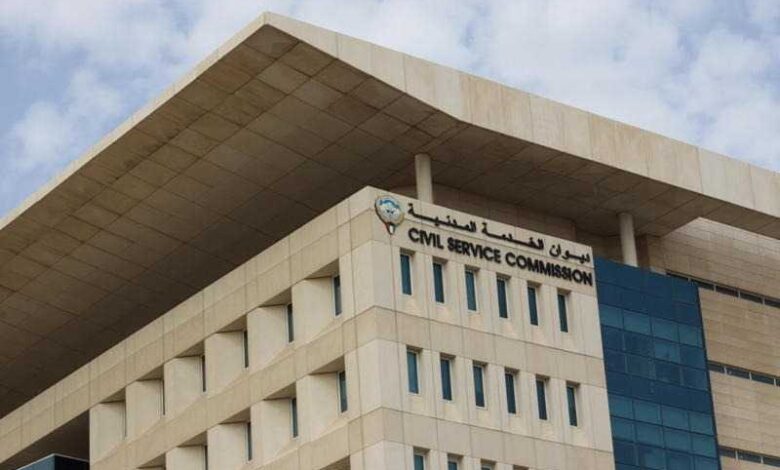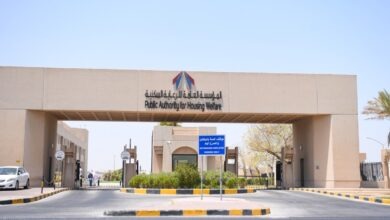Government agencies instructed to verify employee degrees, equivalency
The Civil Service Bureau has directed government agencies and public institutions to furnish academic degrees of their employees, along with the necessary equivalency documents.

-
The certificate examination will cover all state employees, citizens, and residents with post-high school certificates from 2000 onwards, without bias towards any group.
-
The first step is to review certificates issued abroad. If an employee’s certificate doesn’t meet the required equivalence standards, higher education authorities will verify its authenticity.
The Civil Service Bureau implemented the directives of the Prime Minister, His Highness Sheikh Dr. Muhammad Al-Sabah, regarding the examination of the certificates of state employees.
A government source disclosed to Al-Qabas newspaper that the certificate examination will encompass all state employees, both citizens and residents, who have acquired certificates beyond high school from the year 2000 onward. The examination will not be biased towards any specific group.
The sources stated that the Civil Service Bureau has instructed all government agencies and public institutions to furnish academic degrees of their employees, along with the necessary equivalency documents. This is to prepare for the verification of academic certificates and ensure their validity. It was explained that government agencies, including the Ministries of Education and Endowments, have already taken steps to address their employees in this regard, and they urge other entities to follow suit.
The source indicated that uploading the certificates and their equivalency on the automated system is just the first step, to be followed by further examination of the certificates.
The initial step would involve examining certificates issued from outside the country. If an employee’s certificate is not deemed equivalent according to the necessary procedures outlined by the Ministry of Higher Education, higher education authorities will be contacted to take measures to verify the authenticity of the certificate. This involves contacting the relevant cultural offices and the university that issued the certificate for verification.
If the certificate is deemed equivalent, higher education authorities will be contacted to verify the accuracy of the attached equivalency.
The source pointed out that the easiest certificates to examine are those issued by Kuwait. They will be left for the last stage, and the country’s higher education institutions will be contacted to verify their authenticity.
The source emphasized that the examination procedures require significant time and effort. It was stressed that the relevant bodies must expedite the provision of the necessary data to the office. This will enable it to take subsequent measures to ensure the validity of the certificates.
Regarding the legal procedures for proving that the certificate is not valid, the sources emphasized that these procedures include referring the matter to the prosecution to hold the certificate holder accountable.
The sources pointed out that the issue of fake and forged certificates is not a new one, as the battle against diploma mills began early on. This involved shutting down numerous suspicious universities in various countries during the tenures of former education ministers, such as Dr. Moudi Al-Humoud and Nouriya
Al-Subaih, particularly in the Philippines and elsewhere, over a decade and a half ago. Subsequent efforts and measures have been undertaken by other ministers as well.
However, the issue reached its peak in 2018 when the then Minister of Education and Minister of Higher Education, Hamed Al-Azmi, referred hundreds of forged certificates to the Public Prosecution for further action.
This initiated a series of procedures regarding the examination of the certificates, which are currently underway. These procedures were facilitated by the establishment of the Equivalency Administration in 2018 and the formulation of a list of equivalencies in 2019, which acted as a barrier against counterfeiters.
The sources concluded that the process of examining academic certificates began in government agencies at that time. However, the emergence of the coronavirus crisis led to the continuation of the certificate examination process.
The source indicated that since 2018, the Ministry of Higher Education has implemented the practice of assigning an automatic number to each issued equivalency. This number serves as a reference and description of the equivalency on the ministry’s website. It enables authorities receiving the certificate to verify its authenticity by entering the automated number on the website. Therefore, equivalencies issued after this date will be easier to review and
examine.
The sources called for the activation of Law 78 of 2019, which prohibits the use of non-equivalent scientific certificates. They indicated that many public sector employees are currently working with non-equivalent certificates due to the law not being activated.
She highlighted that updating the lists of universities approved by higher education authorities has helped in halting many suspicions of forged, fake, and substandard certificates. This was particularly evident after reducing the number of approved universities in Egypt to only seven and in Jordan to only five, which aided in controlling the issuance of certificates from these countries.












